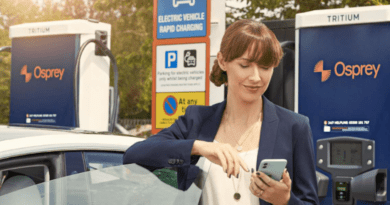
Zoomo: How Covid inspired a cultural shift towards e-bikes
Joey Skavroneck, US director of e-bike brand Zoomo, explains how the Covid-19 pandemic has boosted the popularity of green transport solutions.
Zoomo is an Australian-based global e-bike provider with established markets in three different continents, including the UK, America and Australia. Earlier this year, the company secured $12 million (£8.7million) of investment to develop and accelerate its products and services to cater for the growing demand of e-bikes and electric mobility all over the world.
Speaking on the Everything EV Podcast, Joey Skavroneck, the US director for Zoomo, said the Covid-19 pandemic has helped increase the popularity of e-bikes as people sought to use greener forms of transport.
He said: “I think in Australia, in the US and in the UK, they’re all on the critical path to mass e-bike adoption which is really cool to see. Now, they’re on different parts of their journey. I think the UK, and the rest of the EU, is a little bit further ahead by at least six to 12 months than potentially the US and Australia.
“What’s happened with Covid-19, as terrible as it’s been on the world for last two years and as much havoc as it has wreaked, the silver lining there is that its accelerated clean transportation and e-bike adoption probably by about a decade into the future I’d say. Especially in the US, when I started at Zoomo, e-bikes still had this perception as a vehicle for senior citizens and now you look around at a city like San Francisco and there are people of all shapes, sizes, ethnicities and genders who are using e-bikes and it’s been really neat to find the democratisation of e-bikes and the cultural shift, saying ‘hey actually this is this is actually really cool thing to use.’”
E-bikes, as well as e-scooters, have become increasingly popular in the UK, with recent statistics that in the ten months to October 2020, the UK government reported some 50,626 e-bikes entering the UK from the EU, a 23.6% increase on the 2019 total of 101,362.
That level of demand has continued to grow and coincides with the UK governments’ plans to ban the sale of petrol and diesel cars by 2030. The US government has set a similar deadline, but for only half of new vehicles manufactured to be electric by 2030.
Whilst Skavroneck believes that is an ambitious target for the US government, he also believes that the increase in popularity for e-bikes will also help tackle another problem.
“It is an ambitious target,” he said. “I think it you see different forces I think in US politics that you obviously don’t see in other areas of the world. I’m a huge proponent of any type of clean and electric vehicle adoption; it doesn’t matter if it’s a car or if it’s a bike or if it’s a scooter, I think that climate change is the battle of our generation and I’d love to see us all moving in the same direction.
“Where I’ve seen the UK take a stance is they understand that it’s not just displacing gas-powered vehicles with electric vehicles but it’s doing it in a way that doesn’t increase congestion. The UK was one of the first countries to introduce a congestion tax because what needs to happen is not only an incentivised system of changing the production of vehicles from gas to electric, but we need to reduce car demand in our cities. What you see in the US is all of our energy and policy making to date has been focused on increasing the supply of roads to keep up with car demand and we know that it’s a race to the bottom.
“It is really cool to see the US look east to the UK and other progressive countries around transportation and start to realise that it’s not just about the conversion of the production of the vehicles but making sure that we are reducing our demand in cars in general. It’s great if the car in front of you is an EV instead of a gas-powered vehicle, but if it’s still sitting in front of you in traffic. That’s still a tax on the system.”





